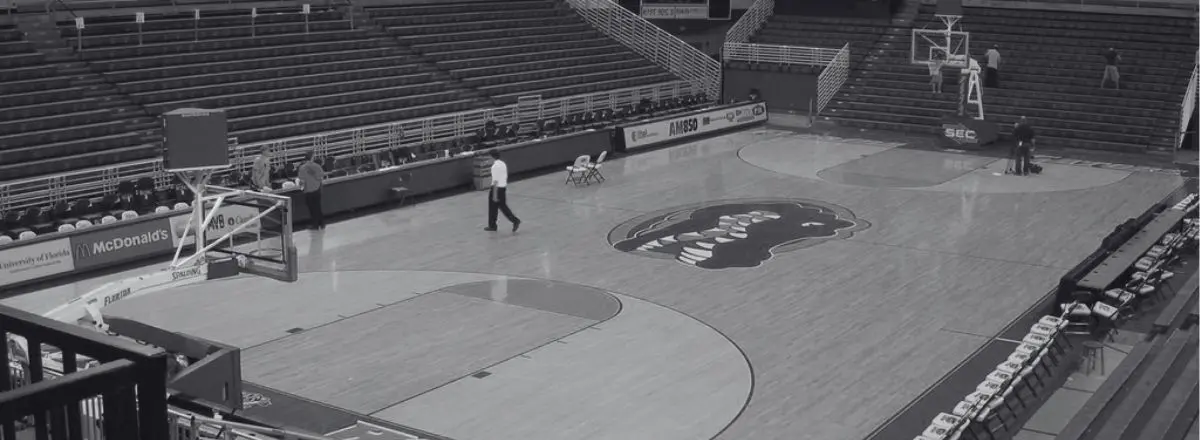As the litigation over the future of Florida online sports betting continues to drag on, it can be easy to lose sight of what’s at stake.
Indeed, this is a somewhat bonkers thing to say on its face. The current legal battle once overturned sports betting in Florida, in all its forms, for basically two years. Sports gambling operations in The Sunshine State only relaunched around December 2023, not even three months ago as of this writing. No one will soon forget what seismic change to the state’s gaming laws will look or feel like.
At the same time, the second rollout of Florida sports gambling presently gets treated as something as a definitive resolution. Would the Seminole tribe really go through the trouble of relaunching their sports wagering services, including their Florida online sports betting app, if they weren’t absolutely certain the courts involved are prepared to uphold their gaming compact with the state?
It’s a fair question. Especially because the Seminole tribe initially resisted the reintroduction of sports operations services because of the legal limbo in which it existed.
Still, in reality, nothing is resolved. Not totally. The Supreme Court of the United States (SCOTUS) has yet to decide whether they’ll hear the case brought forth by West Flagler Associates (the plaintiffs). Heck, we haven’t even moved past the initial proceedings. Most recently, the Department of the Interior (DOI) requested to extend the deadline for their response to the West Flagler Associates filing. The limbo continues.
Even so, many expect SCOTUS to eventually take the Florida online sports betting case on its merits. If that turns out to be true, anything could plausibly happen. And at that point, SCOTUS would effectively be determining the fate of a multi-billion dollar industry.
Experts Estimate Florida Online Sports Betting Could Generate Over $4 Billion in State Revenue
Mike Schneider of the Associated recently wrote about how much money is at stake for The Sunshine State when it comes to Florida online sports betting. The numbers to date, as well as future projections, may shock you.
“A lot of money is at stake,” he explained. “The tribe launched its online sports betting operation late last year, and Florida’s share of 2024 revenues is already more than $120 million. State economic forecasters predict the revenue sharing from tribal gaming could total $4.4 billion through the end of this decade.”
These forecasts are monstrous. With six years to go in the 2020s, we’re talking about Florida sports betting potentially generating $733-plus million in state tax revenue per year. And just so we’re clear, this number would be pure profit. It is not the Florida sports betting handle (total amount of wagers placed). Nor is it the revenue that would be reaped by online sportsbooks in the United States. These projections are completely separate, referring exclusively to the additional tax revenue Florida stands to glean.
Yet another reversal of Florida online sports betting would wreak havoc on these estimates. Yes, the Seminole tribe would, in theory, still be running on-site sports gambling operations. But right now, customers can bet on sports from anywhere in Florida by using the Seminole’s Hard Rock Florida sports betting app.
That accessibility cannot be replicated with retail transactions alone. Not in the current United States sports betting climate. Certain markets see anywhere between 90 percent and 98 percent of legal sports wagers placed with online betting sites. That's not a demonstrative share. Or even a majority share. It's a dominant share.
The Fate of Online Sports Betting in Florida Feels Unpredictable
To be fair, the above figures are most common in rural areas where residents aren’t centrally located to on-site sportsbooks. But they are not only unique to smaller markets alone.
In January 2024, for example, 98 percent of the Ohio sports betting handle was processed through mobile wagering sites. The Buckeye State is a major market—among the top seven sports betting markets in the United States. Florida may not be as dependent on mobile sports betting sites. But their gambling revenue stream would, without question, be gutted if the Seminole tribe sports betting app is restricted to use on tribal property.
And that remains the primary issue as play. West Flagler Associates as well as other casino operators and online sportsbooks would love to enter the Florida sports betting market themselves. But they aren’t fighting for that right here. This lawsuit is first and foremost about shutting down off-site Florida online sports betting.
Are the Seminoles violating the state constitution by allowing off-site online wagers? Or, as they argue, is their Florida mobile sports betting app an extension of their tribal property, making it exempt from the need for a constitution amendment when it comes to off-site wagering?
That will be the primary decision (presumably) at the hands of SCOTUS. The Florida Supreme Court as well as The Sunshine State’s governor, Ron DeSantis, and his office have already sided with the Seminole tribe’s argument. But district courts, and some state branches, have not. And so, quite literally, what happens next in the Florida online sports betting saga is anyone’s guess.
Take a look at this list of the top online sportsbooks so you can find one that works for all of your sports betting needs:
-
 50% bonus up to $250Play Now
50% bonus up to $250Play NowT&C apply, 18+, Play responsibly
-
EXCLUSIVE BONUS
 125% up to $2,000Play Now
125% up to $2,000Play NowT&C apply, 18+, Play responsibly
-
 50% up to $200Play Now
50% up to $200Play NowT&C apply, 18+, Play responsibly
-
 150% up to $225Play Now
150% up to $225Play NowT&C apply, 18+, Play responsibly
-
 50% bonus up to $1000Play Now
50% bonus up to $1000Play NowT&C apply, 18+, Play responsibly











